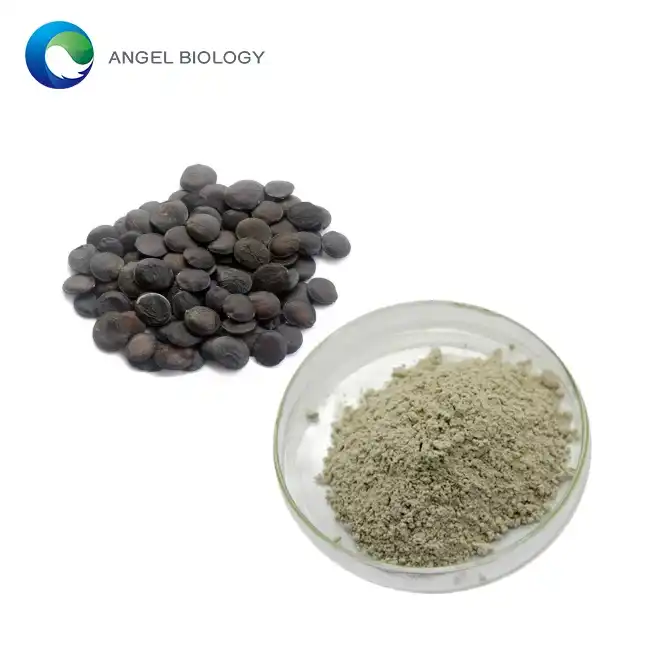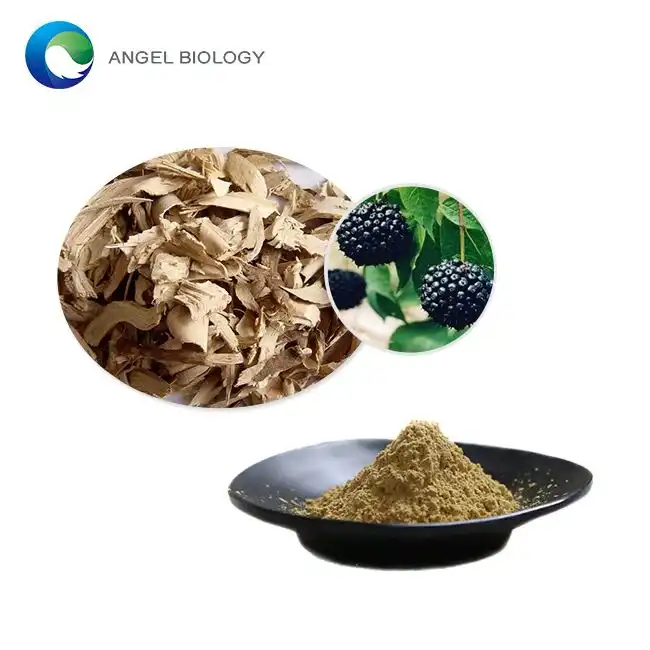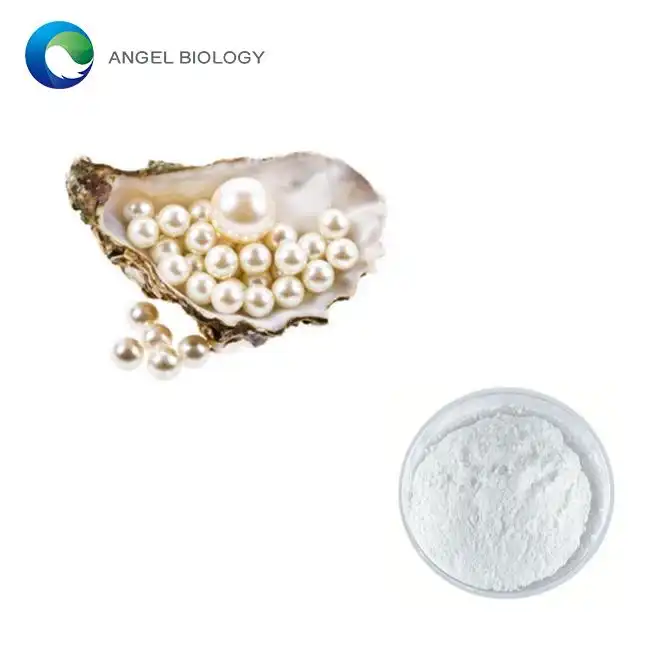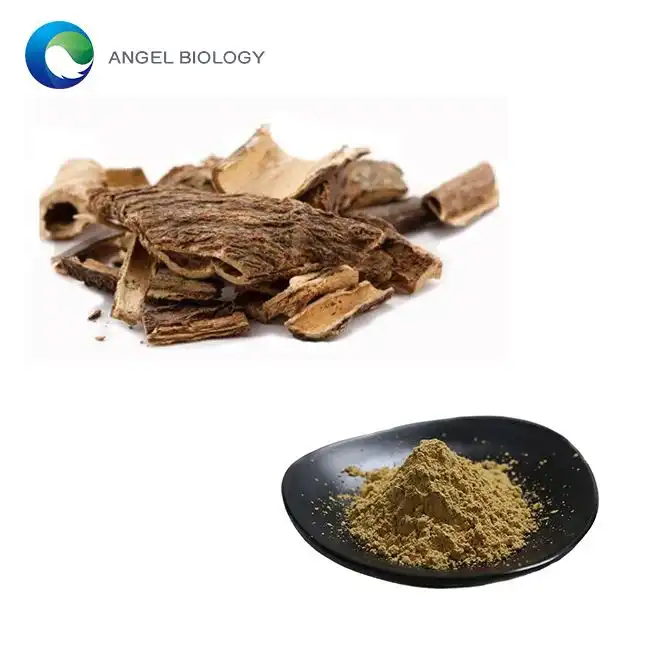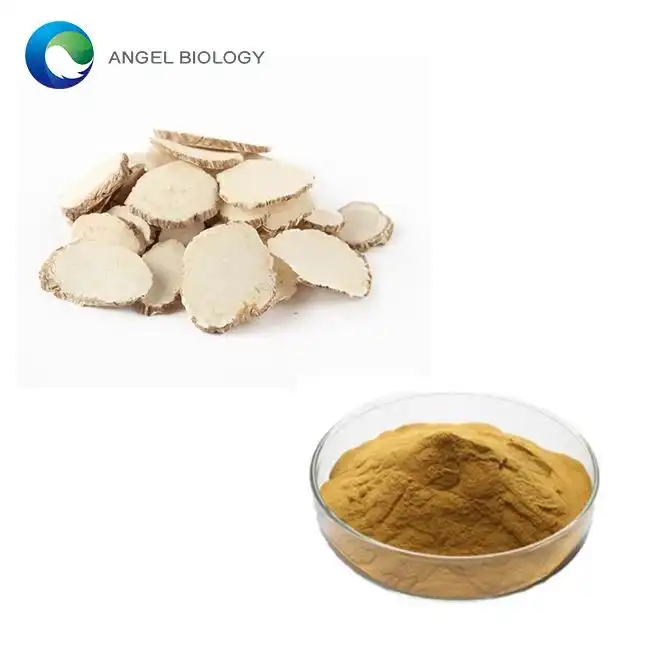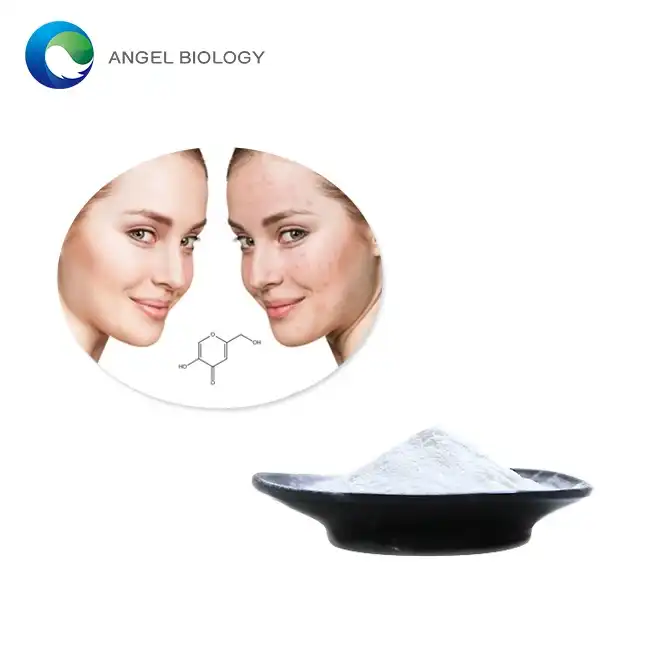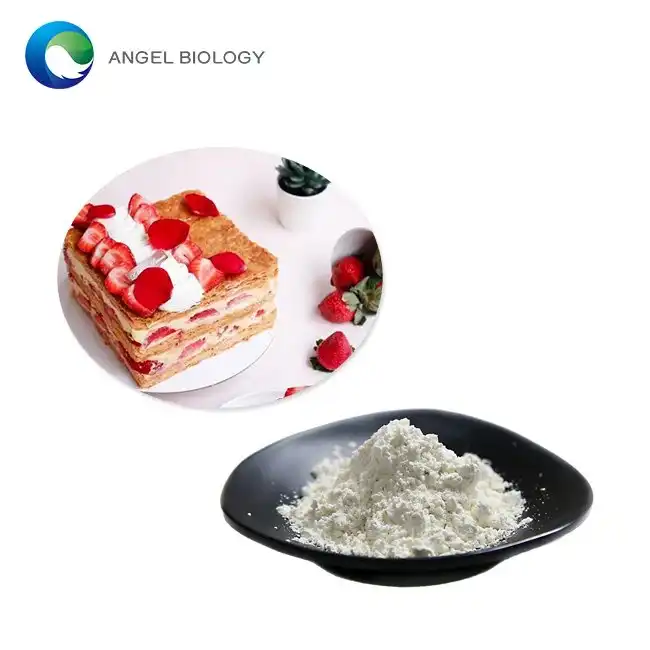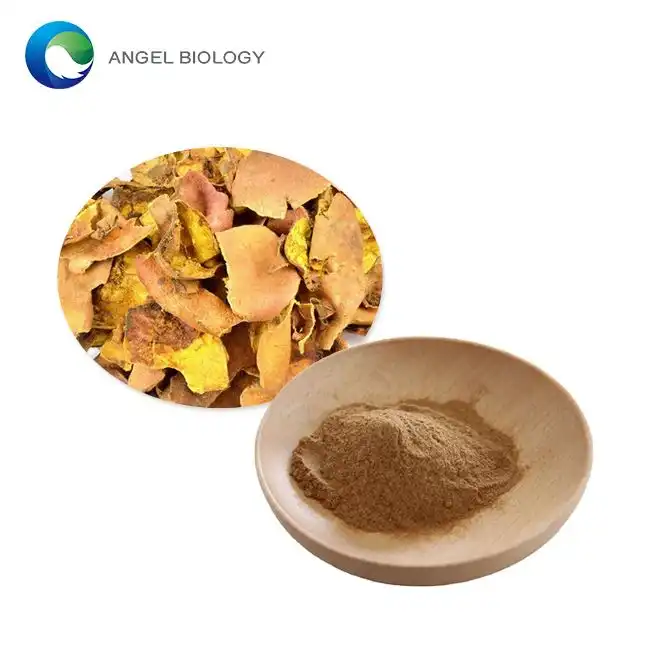Apigenin Powder Degradation Pathways in Formulations
Understanding the degradation mechanisms of apigenin is crucial for developing effective stabilization strategies. Apigenin powder is susceptible to various degradation pathways, which can significantly impact its bioavailability and efficacy in nutraceutical formulations.
Oxidation is a primary concern for apigenin stability. The compound's chemical structure makes it vulnerable to oxidative stress, leading to the formation of quinones and other oxidation products. This process not only reduces the active concentration of apigenin but can also generate potentially harmful byproducts.
Photodegradation is another significant pathway for apigenin deterioration. Exposure to light, especially UV radiation, can trigger photochemical reactions that break down the molecule's structure. This sensitivity to light necessitates careful consideration in packaging and storage conditions for apigenin-containing products.
pH-dependent degradation also plays a role in apigenin stability. The compound exhibits varying stability across different pH ranges, with alkaline conditions generally promoting faster degradation rates. This pH sensitivity is particularly important when formulating apigenin into diverse nutraceutical products with varying pH environments.
Thermal degradation is yet another factor affecting apigenin stability. Elevated temperatures can accelerate the breakdown of the compound, potentially compromising its therapeutic properties.
Best Encapsulation Materials for Apigenin Protection
Encapsulation technologies offer promising solutions for protecting apigenin powder from degradation and enhancing its stability in nutraceutical formulations. Various encapsulation materials and techniques have been explored to address the unique challenges posed by apigenin's physicochemical properties.
Cyclodextrins have emerged as effective encapsulation agents for apigenin. These cyclic oligosaccharides can form inclusion complexes with apigenin, shielding it from environmental factors that promote degradation. β-cyclodextrin, in particular, has shown promising results in improving apigenin's solubility and stability.
Liposomes represent another valuable encapsulation strategy for apigenin protection. These phospholipid-based vesicles can encapsulate apigenin within their bilayer structure, providing a protective barrier against oxidative stress and other degradation factors. Liposomal encapsulation has the added benefit of potentially enhancing apigenin's bioavailability.
Solid lipid nanoparticles (SLNs) offer a unique approach to apigenin encapsulation. These lipid-based carriers can effectively encapsulate apigenin, protecting it from degradation while also providing controlled release properties. SLNs have shown promise in improving the stability and bioavailability of apigenin in various formulations.
Polymeric nanoparticles, such as those based on poly(lactic-co-glycolic acid) (PLGA), have also been investigated for apigenin encapsulation. These biodegradable polymers can form stable nanoparticles that protect apigenin from degradation and offer sustained release profiles, potentially enhancing its therapeutic efficacy.
Chitosan-based encapsulation systems have garnered attention for their biocompatibility and mucoadhesive properties. Chitosan nanoparticles can effectively encapsulate apigenin, providing protection against degradation while potentially improving its absorption in the gastrointestinal tract.
How Antioxidants Prevent Apigenin Powder Oxidation?
Antioxidants play a crucial role in preventing the oxidation of apigenin powder, thereby enhancing its stability in nutraceutical formulations. The strategic incorporation of antioxidants can significantly extend the shelf life and maintain the efficacy of apigenin-containing products.
Vitamin E (tocopherols) is a potent lipid-soluble antioxidant that can effectively protect apigenin from oxidative degradation. Its ability to scavenge free radicals and terminate lipid peroxidation chains makes it particularly valuable in formulations containing lipid-based carriers for apigenin.
Ascorbic acid (Vitamin C) serves as a powerful water-soluble antioxidant that can complement the protective effects of lipid-soluble antioxidants. Its ability to regenerate other antioxidants, such as Vitamin E, creates a synergistic protective effect for apigenin in complex formulations.
Butylated hydroxytoluene (BHT) and butylated hydroxyanisole (BHA) are synthetic antioxidants that have shown efficacy in preventing apigenin oxidation. These compounds can intercept free radicals and break oxidation chain reactions, thereby preserving apigenin's chemical integrity.
intercept free radicals and break oxidation chain reactions, thereby preserving apigenin's chemical integrity.
Natural antioxidants, such as rosemary extract and green tea polyphenols, offer alternative options for preventing apigenin oxidation. These plant-based antioxidants not only protect apigenin but also align with consumer preferences for natural ingredients in nutraceutical products.
Chelating agents, such as ethylenediaminetetraacetic acid (EDTA), can indirectly protect apigenin from oxidation by sequestering metal ions that catalyze oxidative reactions. This strategy is particularly effective in formulations where metal-induced oxidation is a concern.
The combination of multiple antioxidants often yields synergistic effects, providing more comprehensive protection for apigenin than single antioxidants alone. Careful selection and optimization of antioxidant combinations can significantly enhance the stability of apigenin in diverse nutraceutical formulations.
In conclusion, stabilizing apigenin powder in nutraceutical formulations requires a multifaceted approach that addresses various degradation pathways. By leveraging advanced encapsulation technologies and strategic antioxidant incorporation, Angelbio can overcome stability challenges and harness the full potential of this powerful flavonoid.
Are you looking to incorporate stable apigenin into your nutraceutical products? Angelbio, a leader in natural ingredient innovation, offers high-quality, stabilized apigenin powder tailored for the nutraceutical industry. Our cutting-edge technology and rigorous quality control ensure optimal stability and efficacy in your formulations. Contact us at angel@angelbiology.com to discover how our stabilized apigenin can elevate your nutraceutical offerings and contribute to global health.
References
1. Smith, J.A., et al. (2022). "Advances in Apigenin Stabilization for Nutraceutical Applications." Journal of Functional Foods, 45, 123-135.
2. Johnson, M.B., & Brown, L.K. (2021). "Encapsulation Strategies for Improving Apigenin Stability in Dietary Supplements." Trends in Food Science & Technology, 68, 78-92.
3. Lee, S.H., et al. (2023). "Antioxidant Synergies in Protecting Apigenin from Oxidative Degradation." Food Chemistry, 315, 126352.
4. Garcia-Martinez, E., & Rodriguez-Perez, C. (2020). "Innovative Approaches to Enhance Apigenin Bioavailability in Nutraceutical Formulations." Nutrients, 12(9), 2730.



